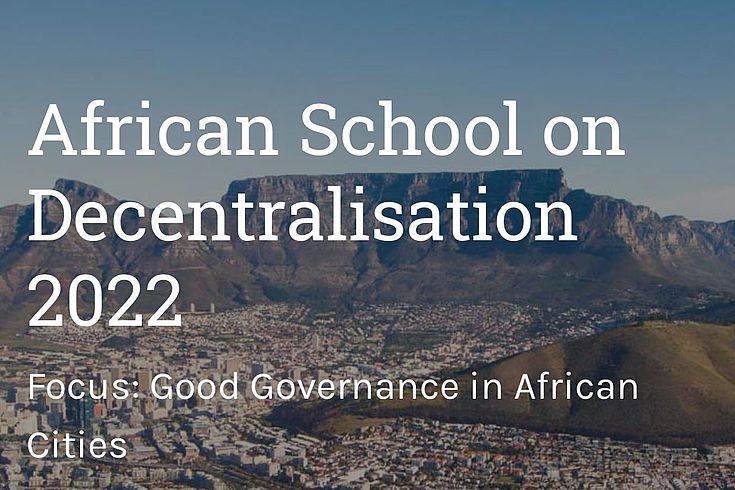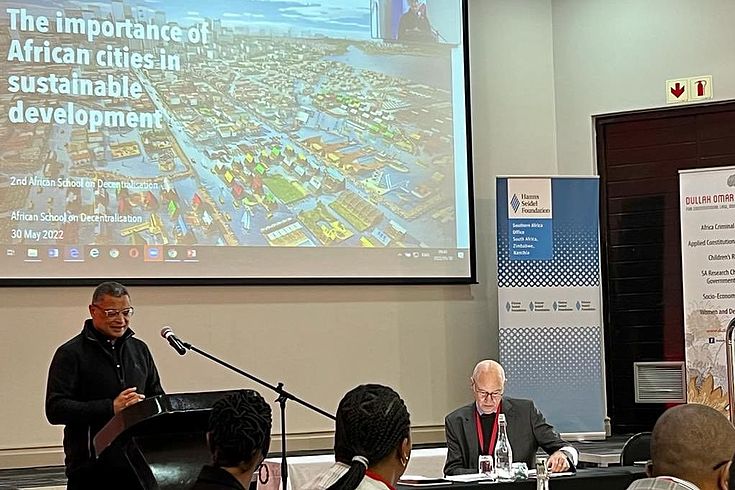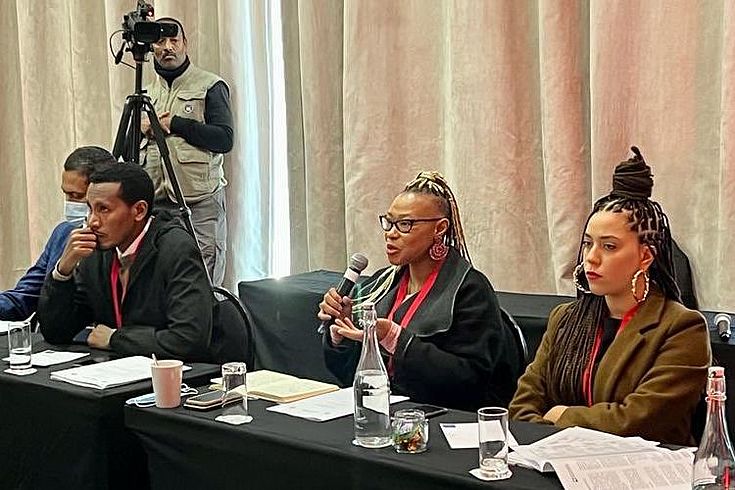Good Governance in African Cities
2nd African School on Decentralisation

The ASD will alternate between Cape Town and Addis Ababa as host cities
Dullah Omar Institute
Co-hosted by the Dullah Omar Institute at the University of the Western Cape, together with the Centre for Federalism and Governance Studies at the University of Addis Ababa, the African School on Decentralisation (ASD) also partners with renowned institutions internationally, to locate the African decentralization experience within the wider, global discourse of decentralisation as well. It aims to create a platform for knowledge-sharing on decentralization in Africa, thus contributing towards increased research outputs, knowledge and skills, as well as innovation and the promotion of good governance. The 2-week event will take place annually, alternating between Cape Town and Addis Ababa.
The ASD was also conceptualised drawing on experience of the international Federalism Days in Germany which have been facilitated by the Hanns Seidel Foundation for a number of years.

"The importance of African cities in sustainable development" - Prof. Edgar Pieterse giving the keynote lecture during the ASD opening session held as a public hybrid event
Dullah Omar Institute; HSF
During this year's ASD in South Africa, practitioners, executives, mayors and renowned researchers exchanged experiences and discussed interdisciplinary models for good governance in African cities. Prof Edgar Pieterse gave the keynote lecture at the insightful opening session which was accessible to the public in a hybrid event as well. What are appropriate strategies and policies for sustainable African cities and inclusive growth needed to improve people‘s lives? Topics in the rich, diverse 2-week program included democracy and inclusivity, high levels of informality, transparency and participatory budgeting, safety and gender aspects of local governance.
The Commonwealth Local Governent Forum facilitated a great session on the Commonwealth Sustainable Cities Network, which included a call to action on sustainable urbanisation. Speakers explained the value of partnerships facilitating smarter, inclusive, resilient cities and shared practical examples.

Participants were very active contributors in the discussions during the engaging sessions
Dullah Omar Insttute; HSF
Prof Stephen Berrisford, in a session on informality, painted a stark picture of challenges many big cities face, with serious boundary, political and revenue issues. Prof Nico Steytler, in his lecture on cities and democracy - elections, political pluralism and cooperation - provided great analysis of the legal situation and the reality in different African countries, also looking at examples to assess to what degree local governments are truly empowered, allowed and able to advance democracy. Prof Eva Maria Belser, co-director of the Institute of Federalism of the University of Fribourg, was among the renowned speakers from international partner institutions.
The 25 participants, who had been chosen from hundreds of applicants, appreciated the productive mix of cutting edge research and practitioner input. They contributed hugely to the interactive sessions, which included discussions of case studies from different African countries as well. In their feedback, participants expressed how valuable and enjoyable they found the school and the learning experiences.
Subscribe to our Newsletter to receive event invitations and new publications via email - and follow us on Facebook and Twitter for news about our work.
